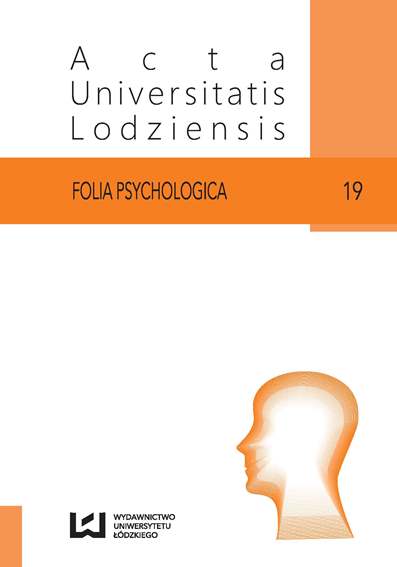Wpływ sprawności funkcjonowania pamięci roboczej na powstawanie fałszywych wspomnień
THE INFLUENCE OF WORKING MEMORY EFFICIENCY ON CREATING FALSE MEMORIES
Author(s): Patrycja MaciaszekSubject(s): Social Sciences, Psychology
Published by: Wydawnictwo Uniwersytetu Łódzkiego
Keywords: memory; working memory; attention; DRM paradigm; list of words related; depth of processing; resource allocation model
Summary/Abstract: The aim of this experiment was to determine how the proficiency of working memory functions (WM) influences the tendency to create false memories. The DRM paradigm (Deese, 1959; Roediger, McDermot, 1995, adapted culturally) was used to operationalize the term “false memory”. The WM functions were defined after Miyake and Shah (1999) as (1) alternating attention, (2) content updating and (3) reaction inhibition. 94 subjects were tested (students of University of Łódź, ages 19–26 (M = 20; SD = 1,735)). SWATT and MEMATT tests were used to measure the aspects of the WM and DRM related words lists were used to test the false memories creation. The results positively verified the hypothesis, that the WM’s proficiency substantially influences the amount of false memories created, as it determined the decision making strategies. The subjects with the reflexive strategy scored less false memory markers and more omission errors than those with the impulsive strategy. This result can be explained by deeper information processing in subjects who use the reflexive decision making strategies (Craik, Lockhart, 1972). Utilizing the reflexive strategy was recognized as the correct way of redistributing the WM’s resources (Kahneman, 1973). Also a regression model was created that suggested a 45.5% drop of false memory errors if the impulsive strategy was to be replaced by a more reflexive one.
Journal: Acta Universitatis Lodziensis. Folia Psychologica
- Issue Year: 2015
- Issue No: 19
- Page Range: 63-78
- Page Count: 16
- Language: Polish

